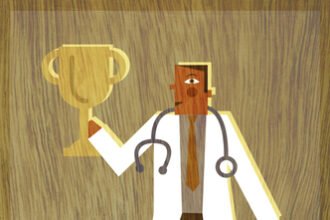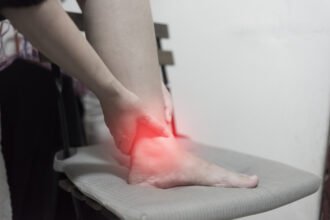Due to the growing popularity of energy drinks among the general public, there is growing concern about the health risks of over-consumption of caffeine. This is especially true in highly “caffeinated” professions such as healthcare — where doctors, nurses and other medical professionals who work long shifts often rely on the stimulation of caffeine to power through their day. Medical professionals have made a career out of caring for others — but could their daily caffeine habits be putting them at risk? Medical Professionals Are Among the Top Consumers of Coffee It’s estimated that 80% of American adults consume caffeine daily. According to a 2012 survey jointly commissioned by Career Builder and Dunkin Donuts, nursing is among the top ten professions that consume the most coffee. In another survey conducted British PR firm Pressat, medical staff and nurses are in the list of top caffeinated professions — and it seems safe to postulate that the same holds true in the U.S. In addition, most physicians work an average of 40 to 60 hours per week, but nearly 25% work between 60 and 80 hours in a given week. Given such long hours, it makes sense that people in the medical profession would rely on regular daily caffeine intake to manage fatigue. The question arises, however: Could their daily caffeine intake fall outside the recommended daily limits? Medical Professionals Working Long Hours Could Exceed Recommended Caffeine Limits An average eight-ounce cup of coffee delivers about 100 milligrams of caffeine. According to health guidelines from the Mayo Clinic and the National Alcohol Beverage Control Association, adults are advised to:
- Consume no more than 400 mg of caffeine per day (four cups of coffee)
- Consume no more than 200 mg at one time (two cups of coffee)
Beyond that, say 500 or 600 mg daily (five to six cups of coffee), a person may start to experience serious adverse effects. But workers who have long hours, like doctors and nurses, could easily exceed these recommendations. Consider this: Of workers who drink coffee, 63% drink two or more cups per day and nearly 30% drink three or more cups per day. Therefore, within the medical profession, which requires both focus and physical stamina, it’s conceivable that regular coffee drinkers could consume four or more cups of coffee per day. That’s a whole lot more than the recommended daily intake. Four Cups of Risk Caffeine toxicity starts at 400 mg or four cups of coffee — a level that medical professionals could exceed each day. There are serious risks associated with over-consumption of caffeine. Known side effects include the “jitters,” irritability, restlessness and fast heartbeat. In extreme excess, the signs of too much caffeine include:
- Heartburn
- Anxiety
- Muscle spasms or twitches
- Racing thoughts or stuttering
- Heart palpitations
- Increased urination
- Stomach cramps
- Dehydration
- Insomnia
- Headaches
- Hallucinations
- Hypertension
- Stomach ulcers
Nurses and physicians who work long hours in a professional lifestyle fueled by coffee may run the risk of consuming more than the recommended daily amount of caffeine — and facing the associated effects on their health over time. Can the healthcare industry realign its current practices to promote care, concern and reasonable scheduling for those charged with the responsibility to take care of others? Potentially. It will involve a hard look at many practices seen as standard in today’s hospitals and care centers, and big changes take awareness, time, advocacy and sometimes, legislation.







